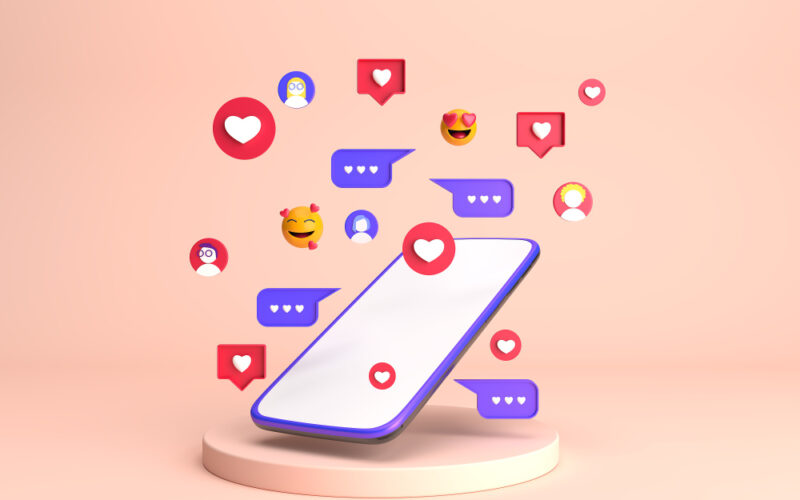How does social media affect our mental health?
Imagine social media sites like Instagram, Tiktok, or even Snapchat being banned and being disconnected from everyone on the internet. In these few years of technological development, social media has become a part of our lives. We post, share, like, follow, and communicate on social media. In this century, it is difficult to imagine communication without social media.
Social media has changed our communication
Before social media developed, people interacted with each other in person or through phone calls. In face-to-face communication, we are more likely to create personal connections, not only by having deep conversations but also by experiencing non-verbal interactions. Ever since social media gained popularity, individuals have spent more time texting, posting, and watching videos on platforms. According to Deyan Georgiev (2019), the number of social media users is approximately 4.76 billion, and the typical user dedicates 2 hours and 31 minutes daily to social media. Social media introduced us to new ways of entertainment, education, and communication.
Does social media have a positive effect on our mental health?
In recent years, many people have utilized social media to share information and communicate with others. Using social media routinely every day has a positive impact on mental health. A study by Mesfin Awoke Bekalu (2019) suggests that daily usage of social media and engaging with others positively affects three health measures: social well-being, positive mental health, and self-rated health. Therefore, daily usage of social media in moderation can have a beneficial impact on mental health.
Can social media harm our mental health?
Nonetheless, despite the positive outcomes of social media utilization, excessive usage of social media can result in mental health problems such as anxiety, stress, and depression. Research conducted by the Center for Addiction and Mental Health (2018) concluded that individuals who spend time on social media for more than two hours per day are significantly more likely to experience moderate to serious psychological distress. Psychological distress is not the only downside of social media; there is also cyberbullying, which is a form of bullying that transpires online. There is a stronger association between cyberbullying and suicide attempts than in-person bullying because it leaves a digital footprint. Tyler Clementi, who was 18 years old, committed suicide after his roommate secretly filmed his intimate interaction with another man and uploaded it to Twitter. It is important to note that excessive and unethical use of social media can harm one’s mental health as well as life itself.
Conclusion
To summarize, social media has a substantial impact on our mental health. While social media provides entertainment, education, and communication, it is vital to be aware that excessive social media use can have negative impacts on one’s mental health, including anxiety, stress, and depression. Cyberbullying can also have major implications for the people who are targeted. Individuals must grasp the potential implications of social media usage and establish techniques for using social media healthily and beneficially as it grows in popularity.
References
Centre for Addiction and Mental Health. (2018). Social media use and mental health among students in Ontario. CAMH Population Studies eBulletin. Available at: http://www.camh.ca/en/science-and-research/institutes-and-centres/institute-for-mental-health-policy-research/sharing-our-knowledge/population-studies-ebulletins (Accessed: 29 March 2023)
Deyan, G. (2019). How Much Time Do People Spend on Social Media in 2023? Available at: https://techjury.net/blog/time-spent-on-social-media/#gref (Accessed: 1 April 2023)
Bekalu, M.A., McCloud, R.F. and Viswanath, K. (2019). Association of Social Media Use With Social Well-Being, Positive Mental Health, and Self-Rated Health: Disentangling Routine Use From Emotional Connection to Use. Available at https://journals.sagepub.com/doi/full/10.1177/1090198119863768 (Accessed: 2 April 2023)
